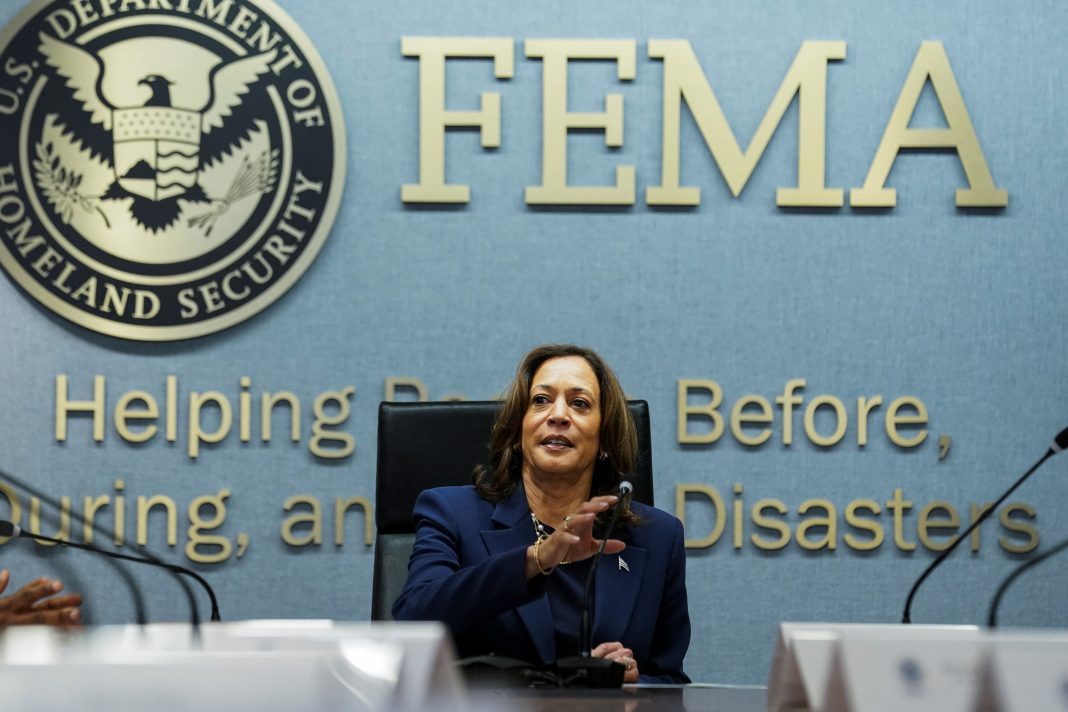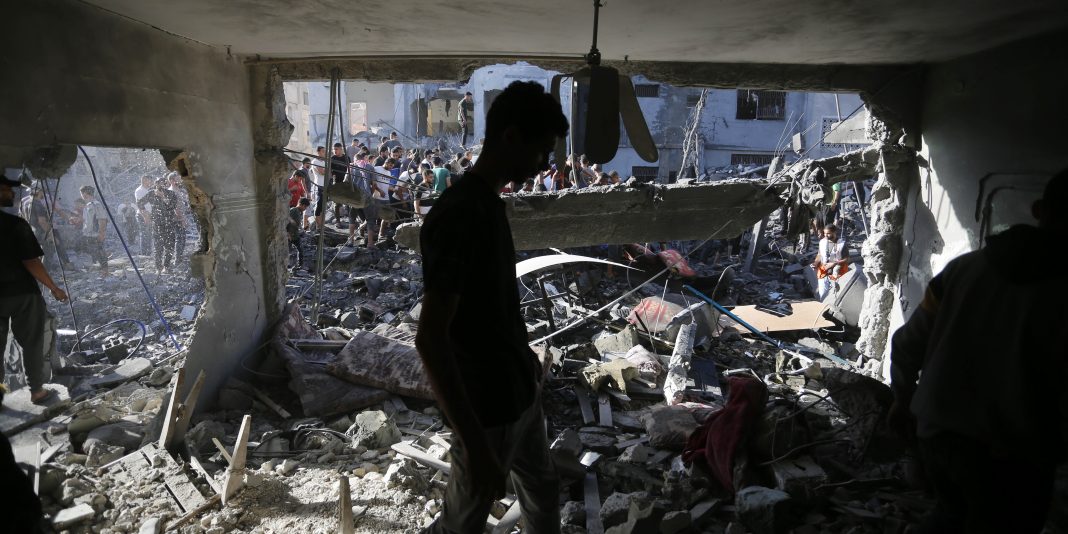In recent weeks, Vice President Kamala Harris has found herself at the center of a growing controversy regarding her preparedness for hurricane season—a responsibility that her predecessor, Mike Pence, approached with diligence and regularity. As the devastation caused by Hurricane Helene unfolded, with a death toll exceeding 143 in the Southeast, critics began to question Harris’s commitment to the foundational, apolitical aspects of her role, especially as she missed several key hurricane preparedness briefings that had become a staple of the vice presidency under both Pence and former President Donald Trump.
The absence of these critical briefings has intensified scrutiny on Harris’s leadership style, with some opponents suggesting that it reflects a broader pattern of disengagement from the governing processes that directly impact American lives. A former aide to Pence articulated this concern succinctly, stating, “Harris hasn’t demonstrated the ability—or desire—to do the apolitical parts of the job that have a huge impact on our lives. Why should Americans trust her to start in the Oval Office?” Such sentiments resonate amid mounting frustrations over the federal response to Hurricane Helene, which has emerged as a significant campaign issue.
Historically, the importance of pre-hurricane season briefings cannot be overstated. Both Trump and Pence held such meetings annually, engaging with federal emergency officials to ensure preparedness for the impending storms. President Joe Biden followed suit, convening similar sessions in 2021, 2022, and 2023. In stark contrast, Harris appears to have eschewed these proactive measures, leading to questions about her readiness to step into the highest office.
The criticism has not been limited to political opponents; experts in emergency management have weighed in, underscoring the value of these meetings. Chad Wolf, a former acting Homeland Security Secretary, noted, “Annual drop-ins from the president and vice president are important.” He explained that these sessions serve as a motivational force for FEMA staff, compelling them to critically assess anticipated issues and align resources effectively. “It’s like any other job where your boss is asking you specific questions—you get more motivated to do a better job,” Wolf added, emphasizing that such oversight can significantly enhance operational effectiveness.
Meanwhile, as the floodwaters receded in western North Carolina, where the impact of Hurricane Helene was particularly severe, local representatives expressed their disappointment with the federal response. Rep. Chuck Edwards (R-NC) lamented the delay in federal assistance, stating, “The response has been disappointing. We knew that the storm was coming, and only today are we beginning to see the first FEMA employees and trailers come in.” This sentiment reflects a growing frustration among constituents who feel neglected in the wake of natural disasters.
In defense of Harris, her office has pointed to her involvement in disaster response efforts, claiming that she regularly receives briefings from federal agencies about emerging storms and disaster responses. However, these claims do little to address the central criticism regarding her absence from preparatory meetings. A spokesperson for Harris highlighted her visits to FEMA headquarters and emergency operation centers, citing specific events where she engaged with disaster preparedness and recovery efforts. Yet, critics maintain that these actions do not compensate for the lack of structured hurricane season briefings, which are vital for fostering a coordinated response.
The broader implications of Harris’s approach to disaster preparedness extend beyond the immediate fallout from Hurricane Helene. Observers note that her leadership during crises could set the tone for her potential presidency. The absence of proactive engagement, as seen in her current role, raises concerns about her ability to navigate the complexities of governance effectively. “It doesn’t seem like she wants to roll up her sleeves and actually get into the governing of the country,” Wolf remarked, suggesting that such a detached approach could lead to similar challenges in future crises.
As the nation grapples with the escalating impacts of climate change and the increasing frequency of severe weather events, the stakes surrounding effective disaster management have never been higher. Political analysts argue that the ability to demonstrate leadership during such pivotal moments may be a litmus test for Harris as she positions herself for a potential presidential run in 2024. The expectations for her performance in this regard will likely intensify as constituents and political adversaries alike continue to scrutinize her actions in the wake of natural disasters.
In conclusion, the ongoing debate over Vice President Harris’s approach to hurricane preparedness underscores a critical juncture in her political career. The juxtaposition of her current role against the backdrop of her predecessors’ proactive strategies raises questions about her readiness to assume greater responsibilities. As the nation confronts an uncertain future marked by climate challenges, the imperative for strong, engaged leadership has never been clearer. Harris’s ability to pivot from reactive measures to proactive governance may ultimately define her legacy and influence public confidence in her potential candidacy for the presidency.

